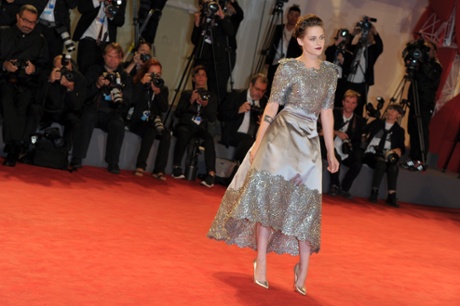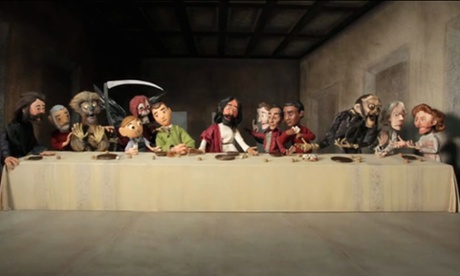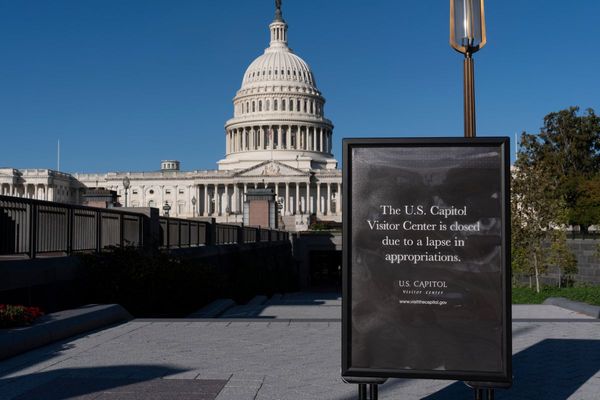
Hang around the Venice Lido in September, and you could form the erroneous impression that film critics are mellow souls who inhabit a haze of balmy contentment. Venice is a remarkably stress-free festival: frequent buses, screenings you can saunter into at the last minute, a leafy Casino compound where you can fuel yourself on lasagne and Aperol... All this and some perfectly fine films.
Word in the industry has it that Venice is on the wane. This year’s event felt strangely quiet, some of the Lido’s thunder, and some major films, having been stolen this season by transatlantic rivals Telluride, Toronto and an increasingly noteworthy New York. But enough stars turned up to ensure a reasonable quotient of glitz – among them Johnny Depp, Kristen Stewart, Tilda Swinton, Ralph Fiennes, Juliette Binoche, Mark Ruffalo, the inevitable Shia LaBeouf, and adding some proper class, the Nobel prizewinning novelist Orhan Pamuk.
And the films themselves largely kept us happy. True, we’ve not seen much that is likely to change the face of cinema, but then Venice doesn’t send critics into that state of apocalyptic hysteria that grips us all in Cannes. Here, movies breathe comfortably on their own merits, and this year offered plenty to impress.
The festival was front-loaded with early titles that made a big mark. Arriving two days in, I missed Aleksandr Sokurov’s Francofonia and Tom McCarthy’s investigative drama Spotlight, which people generally raved about, and Black Mass, starring Johnny Depp, which left many cold. But there was plenty more to follow.
One competition title that has been wringing sobs is Heart of a Dog, a very idiosyncratic essay film from artist and sort-of pop star Laurie Anderson. Narrated by Anderson. In that familiar. Staccato diction. Of hers. The film is ostensibly a tribute to her late terrier, Lolabelle, which (wouldn’t you know it?) had talents as a painter and keyboard player. But it’s also a free-ranging contemplation on death, memory, Wittgenstein, Buddhist wisdom and Anderson’s childhood. Implicitly it’s also a lament for Anderson’s late partner, Lou Reed, to whom the film is dedicated. Arguably a touch precious, Heart of a Dog is nevertheless super-literate, witty, moving and extremely inventive.
The Israeli director Amos Gitai offered one of his best in the docudrama Rabin, the Last Day, a forensically serious examination of circumstances surrounding the assassination of the Israeli prime minister Yitzhak Rabin in 1995. Presented partly in a verbatim theatre format, the film is a non-editorialising but nevertheless angry indictment of rightwing Orthodox Jewish factions for scuppering the Palestinian peace process. The film eschews Oliver Stone-style conspiracy theory, but leaves some threads dangling that raise the question of whether Rabin’s killer had help in government security circles.

There was more political material among a plethora of good documentaries. Last year the Belarus-born director Sergei Loznitsa made Maidan, a film about present-day protest in Ukraine. He offers a kind of companion piece in The Event, a collation of archive footage from the streets of Leningrad in August 1991, during the attempted coup against the Soviet president Mikhail Gorbachev. The imagery of confusion and hope among the crowd vividly evokes a sense of what it’s like to live, hour by hour, through a moment of irreversible change.
Other, more immediately pleasurable, documentaries included Noah Baumbach and Jake Paltrow’s De Palma, in which Hollywood maestro Brian De Palma offers a no-holds-barred masterclass on suspense, the rise of his 60s “movie brats” generation, and what’s wrong with Hollywood today. Amy Berg’s Janis: Little Girl Blue was a rough and ready portrait of the singer Janis Joplin, whose raucous crazy-mama persona concealed a profoundly wounded soul; it’s celebratory and heartbreaking in equal measure. Not strictly a doc as such, more an essay-cum-reverie, was Innocence of Memories, a haunting nocturnal piece in which the British director Grant Gee explored the world of Pamuk, and his extraordinary experiment in turning a novel into a real Istanbul museum.
There were few real duds on display, although the competition title Equals got a universal thumbs-down. Drake Doremus’s futuristic romance reworks the hoariest dystopian premise: a future society where emotions are banned. Kristen Stewart and Nicholas Hoult are strong as the white-suited citizens who find love despite it all, but the film is as weary as it is antiseptic. And while it was more a dud than not, you couldn’t help appreciate the ambition of The Childhood of a Leader, a sombre essay on French history from the actor-turned-director Brady Corbet, which essentially warned that inadequate parenting may result in angelic junior growing up to be a fascist dictator (played, in a supremely bizarre coda, by a bald, bearded Robert Pattinson).
All in all, it’s been a very strong actors’ festival. In Atom Egoyan’s Remember, an elderly man with dementia (Christopher Plummer) goes on a mission to track down a Nazi in hiding. Bringing together the Holocaust and Alzheimer’s – in a thriller! – has every potential for a car crash of contentiousness, but Egoyan carries it off with compelling grace, and Plummer’s affecting, imposing performance provides an authoritative centre.
There was also a fine turn from the Chilean master of minimalist acting Alfredo Castro in the Venezuelan feature From Afar, about a middle-aged gay man who gets involved with a violent street kid. And an all-out feast of exuberant thesping came in A Bigger Splash, a hugely enjoyable number from Luca Guadagnino, the Italian director of I Am Love. This comedy of manners, which later becomes a dark psychological thriller, features Swinton as a rock star who can’t speak, and an all-out hilarious Fiennes as a bumptious record producer who can’t stop yapping. Dakota Johnson, of Fifty Shades fame, is a taciturn ingénue fatale, while Belgian muscleman Matthias Schoenaerts breaks a line of nothing roles (not least in the competition’s prestige costumer The Danish Girl) to really shine.

I’ve left until last the title that most people are likely to remember as the absolute highlight of this 72nd Mostra – Anomalisa, a mesmerisingly strange animation by Hollywood’s own Franz Kafka figure Charlie Kaufman, which he has co-directed with the stop-motion specialist Duke Johnson.

Anomalisa is an existential vignette about a depressed consumer relations guru – played by a puppet and voiced by David Thewlis – who visits a Cincinnati hotel and hooks up with a naive young woman, Lisa, voiced with exuberant wistfulness by Jennifer Jason Leigh. Apart from a genuinely freaky nightmare sequence, the film occupies a world of mundane normality – except that all the other characters share the same voice (that of Tom Noonan) and the discrepancy between the intensely human drama and the puppet actors makes for a very eerie effect. The clear frontrunner for the competition’s main prize, the Golden Lion, this determinedly child-unfriendly animation is the most trenchant statement on the human condition here. It will quietly tear your heart to shreds – and make you vow never to visit Cincinnati in your life.
Lido Thrills – Jonathan Romney’s best of the Venice film festival
Best film Anomalisa, directed by Charlie Kaufman and Duke Johnson.
Best performance (female) Jennifer Jason Leigh as the voice of Lisa in Anomalisa.
Best performance (male) Christopher Plummer in Atom Egoyan’s Remember.
Best director Amos Gitai for Rabin, the Last Day.
Best score Avant-legend Scott Walker’s terrifying orchestrations in The Childhood of a Leader.
Best cameo A young Vladimir Putin, furtive in a sports jacket, glimpsed in Sergei Loznitsa’s archive documentary The Event.
Best dance Ralph Fiennes’s contortions to the Stones’ Emotional Rescue in A Bigger Splash and, to audience delight, on stage after the screening.
Best song performance Jennifer Jason Leigh sings Girls Just Wanna Have Fun very slowly in English in Anomalisa – and then again in Italian.
Best party The reception for Grant Gee’s Innocence of Memories – a chance to sample toffee-apple figs, truffles à go-go, and make light conversation with the Turkish Nobel prizewinner Orhan Pamuk, who inspired the film.







